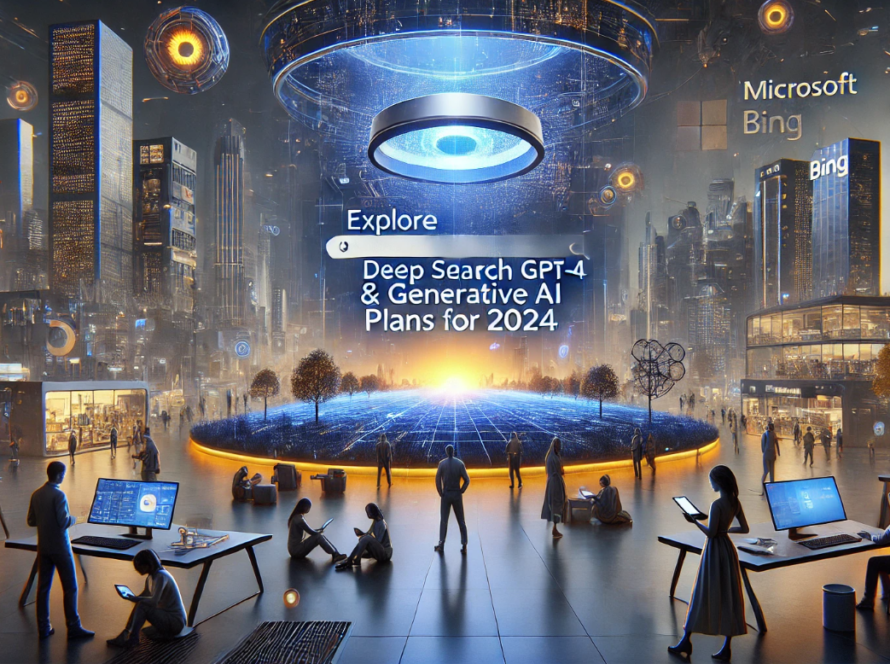In the evolving landscape of search engines and artificial intelligence (AI), Google’s approach to its Search Generative Experience (SGE) reflects a cautious yet strategic maneuver in the competitive tech arena. Initially set to conclude by the end of 2023, the SGE experiment within Google Labs was discreetly extended. This move indicates a deliberate pace by Google in integrating AI into its search functionalities, contrasting with Microsoft’s aggressive advancement with AI in Bing.
The Announcement and Its Implications
Google subtly announced the continuation of SGE in a blog post focused on new AI enhancements in search, highlighting its ongoing experiment with AI to enhance search capabilities. This low-key announcement has sparked discussions on Google’s strategy in AI search development, especially in the face of Microsoft’s prominent strides with ChatGPT integration in Bing.

Google's Historical AI Integration in Search
Google’s journey with AI in search is not new but rather a gradual progression:
- RankBrain (2015): As the pioneer, RankBrain utilized AI for improving query interpretation and relevance in search rankings.
- Neural Matching (2018): Enhanced understanding of search queries and webpage content through broader concept matching.
- SpamBrain (2018): Targeted spam detection using AI, significantly improving search quality.
- Google MUM (2021): A multi-modal system capable of understanding and correlating information across text and images for more comprehensive search results.
These milestones underline Google’s preference for subtly embedding AI into search to tackle specific challenges, maintaining a background role for AI technologies.
The Hesitation to Promote SGE
While Microsoft has openly embraced AI with Bing, Google’s reluctance to advance SGE out of the experimental phase speaks to a broader strategy. Google adheres to principles of proven success and responsibility before fully implementing new technologies. This cautious approach addresses several challenges:
- LLM Limitations: Large language models (LLMs) face significant hurdles, such as the inability to efficiently integrate new data without complete retraining and the propensity for generating inaccuracies, or “hallucinations.”
- Cost and Efficiency: The transformer architecture, while powerful, is resource-intensive, raising sustainability concerns for widespread search applications.
- Accuracy and Trust: Ensuring generative AI provides reliable and factual information remains a paramount challenge.
SGE: A Testbed for Innovation
Despite its current limitations, SGE serves as a valuable platform for Google to explore AI’s potential in enhancing search functionalities. This experimental approach allows for the refinement of AI technologies in a controlled environment, paving the way for future integration when the technology matures.
AI in Search: The Future Landscape
Bing’s initial surge in interest with its AI integration highlights the allure of AI-enhanced search experiences. However, the minimal impact on Bing’s market share over time suggests that users are not fully ready to shift away from traditional search paradigms.
Google’s strategy, as validated by the market’s response to Bing, emphasizes the importance of a balanced approach. Integrating AI in the background of search processes allows for incremental improvements without disrupting user trust or search quality.
Looking Ahead
As AI continues to evolve, its role in search will undoubtedly become more prominent. Google’s cautious yet forward-thinking strategy in AI integration, prioritizing thorough testing and responsible implementation, sets a benchmark for the industry. Meanwhile, Microsoft’s exploration of AI as a background enhancement in its cloud-based products suggests a complementary approach, focusing on AI as a supportive tool rather than the primary interface.
In conclusion, while AI holds transformative potential for search engines, the journey toward its full integration is marked by careful consideration of technological readiness, user trust, and the overall search experience. Google’s extension of the SGE experiment and its broader AI strategy reflect a commitment to innovation, tempered with a prudent recognition of the current limitations and challenges of generative AI technology.
How AI Holds Transformative Potential for Search Engines
AI holds transformative potential for search engines by revolutionizing the way information is retrieved, processed, and presented to users. Through machine learning algorithms, search engines can understand user intent more accurately, leading to more relevant search results. Natural language processing enables search engines to comprehend queries in context, improving the accuracy of results and allowing for more conversational interactions. Additionally, AI-powered search engines can adapt and learn from user behavior, continually refining their algorithms to deliver personalized and tailored results. This transformative potential not only enhances user experience but also opens up new opportunities for businesses to reach their target audience more effectively. To fully leverage the benefits of AI in search engines, it is imperative for businesses to invest in AI-driven search engine optimization strategies and stay updated on the latest advancements in the field. Embracing AI in search engine optimization can significantly enhance online visibility, increase website traffic, and ultimately drive business growth.
In conclusion, while AI holds transformative potential for search engines, the journey toward its full integration is marked by careful consideration of technological readiness, user trust, and the overall search experience. Google’s extension of the SGE experiment and its broader AI strategy reflect a commitment to innovation, tempered with a prudent recognition of the current limitations and challenges of generative AI technology.



